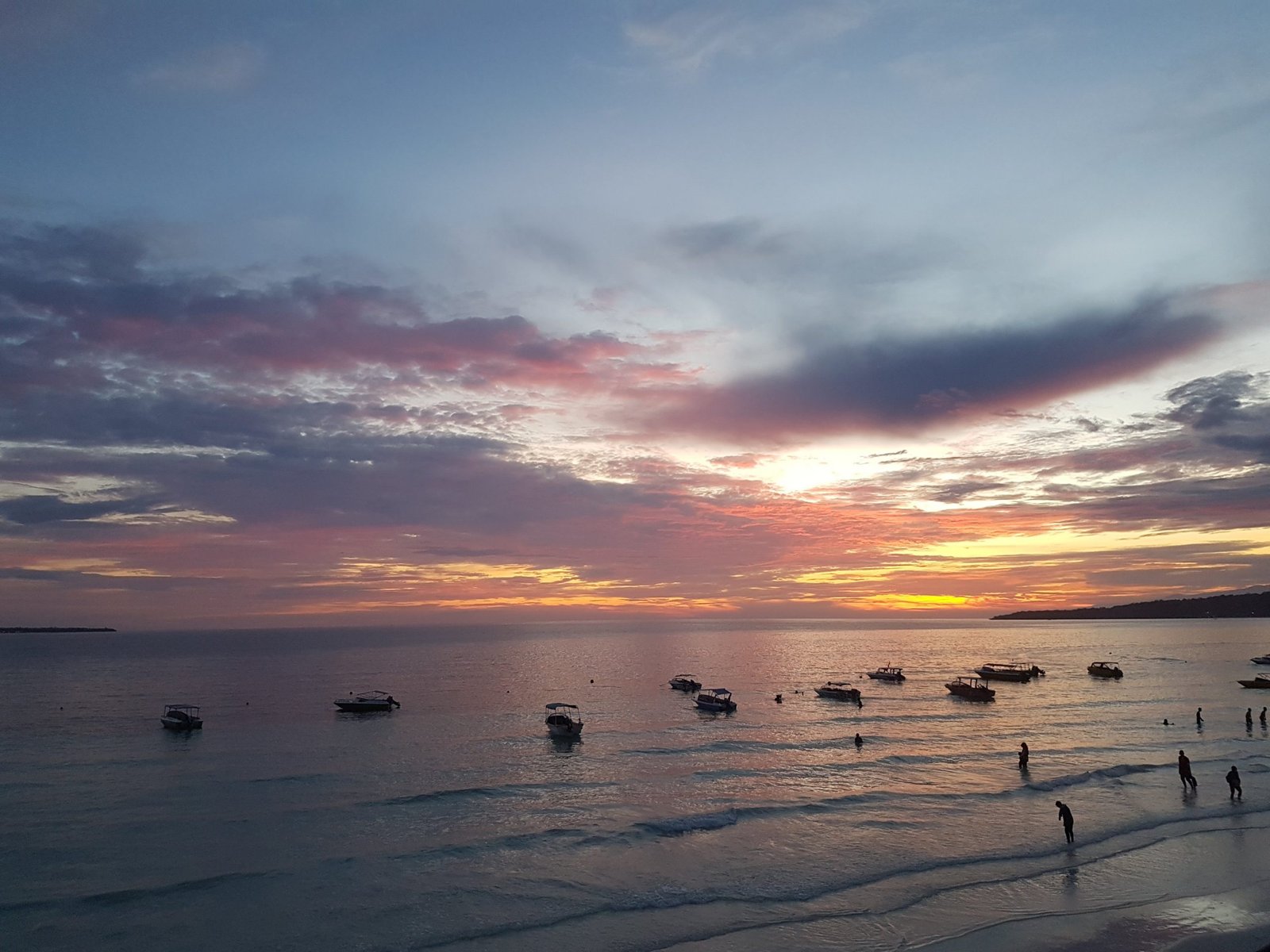
The Matriarchy
My time at Bira Beach was peaceful; I ate fruit and drank coffee with the family at my homestay, and the father, Riswan insisted that I take his phone number when I went out riding – just in case something happened. They made sure that I ate, and suggested that if I wanted to save money, I could buy a fish from the local fishermen, and bring it home, and mother would cook it for me.
There were three daughters in the family – one, still a child; another young and smooth-browed, still at high school, who would would bring me coffee in the mornings, seeming to magically know when I was awake. The older daughter was away at university already, and I could see that Riswan was so proud of her too.

He offered me fruit – bananas – and I ate out of politeness, because I didn’t know the Indonesian words to explain that I was grateful, but allergic. I would only become a bit sick, I figured, it wouldn’t kill me. But here’s the thing: I didn’t get sick. There was no itchy tongue, tight throat, nor difficulty swallowing like that which had taught me to swear off bananas throughout my life. I stared at the little sweet, yellow bananas in delight – pisang susu, or ‘milk bananas’. I couldn’t believe it. Whatever I reacted to when I ate a banana in Australia, was not present here.
I was lit: do you know how cheap bananas are in Indonesia? And abundant? Even when you can’t buy anything else remotely edible – or you’re facing down a day of instant noodles and processed sugar things – you can always find bananas. My south-east asian food plan was sorted.
Riswan must have wondered at the ecstatic expression on my face – I certainly didn’t know the words to explain that in Indonesian either – or perhaps he just thought I’d never had good pisang susu before. Either way, he could tell the gift was well received. We were both pleased.
Later that night, I sat at the beachhead watching boys play soccer on the sand and the light fading across the water.

Alone and unattended, I was quickly abducted by kind middle aged women who wanted to know why I was all alone – where was my husband, my mother, my father? – and ushered me back to their family beach house to be fed.

It was a cavernous, empty building, not really furnished, and I found thirty or forty people sitting the floor of a big room. Small children ran in and out, and old ladies questioned me, and I was introduced to the freshly minted daughter-in-law: young, fresh faced, from Java, she sat quietly with her new husband and observed the family, smiling and polite, still in the unfamiliar territory between family and guest.
It turned out that the middle aged ladies were sisters – I think there were six – and all the other branches of the family came together through them, united for this giant family holiday at the beach. There were a few husbands in the room, but they were quiet: it was quite obvious that the sisters were a gleeful, powerful cabal, and that they ran this show. Some of them wore hijab, some of them didn’t, but for sure they were the dominant the personalities in this great extended family. As I ate chicken and coconut and lontong with them, I reflected that this was very much what I was learning to expect from Indonesian Islam: a largely moderate and infinitely variable face.
Come back in the morning, they told me, we’ll swim at the beach, and they laughed when I asked what time. Sunrise, of course, since they would have been long out of bed by then.
Slightly reluctantly, I agreed; and so it was that I, bleary eyed, walked the sandy shallows with them the following day, in the changing morning light.
* * *


Brilliant ????????
Great pic. 🙂